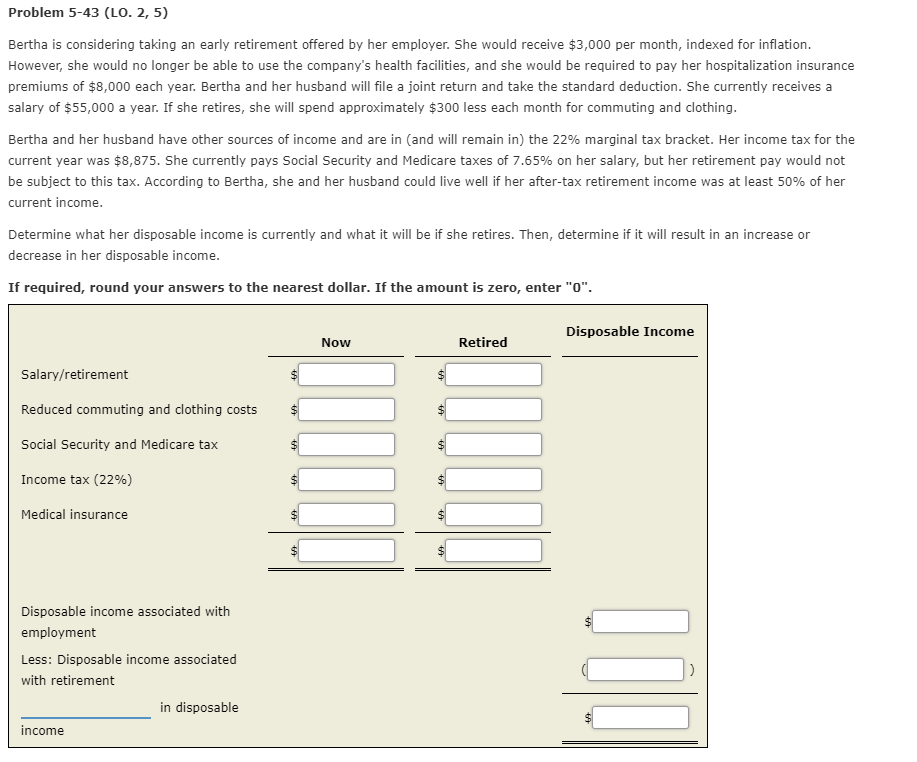
Problem 5-43 (LO. 2,5) Bertha is considering taking an early retirement offered by her employer. She would receive $3,000 per month, indexed for inflation. However, she would no longer be able to use the company's health facilities, and she would be required to pay her hospitalization insurance premiums of $8,000 each year. Bertha and her husband will file a joint return and take the standard deduction. She currently receives a salary of $55,000 a year. If she retires, she will spend approximately $300 less each month for commuting and clothing. Bertha and her husband have other sources of income and are in (and will remain in the 22% marginal tax bracket. Her income tax for the current year was $8,875. She currently pays Social Security and Medicare taxes of 7.65% on her salary, but her retirement pay would not be subject to this tax. According to Bertha, she and her husband could live well if her after-tax retirement income was at least 50% of her current income. Determine what her disposable income is currently and what it will be if she retires. Then, determine if it will result in an increase or decrease in her disposable income. If required, round your answers to the nearest dollar. If the amount is zero, enter "0". Disposable Income Now Retired Salary/retirement Reduced commuting and clothing costs $ Social Security and Medicare tax Income tax (22%) Medical insurance Disposable income associated with employment Less: Disposable income associated with retirement in disposable income Problem 5-43 (LO. 2,5) Bertha is considering taking an early retirement offered by her employer. She would receive $3,000 per month, indexed for inflation. However, she would no longer be able to use the company's health facilities, and she would be required to pay her hospitalization insurance premiums of $8,000 each year. Bertha and her husband will file a joint return and take the standard deduction. She currently receives a salary of $55,000 a year. If she retires, she will spend approximately $300 less each month for commuting and clothing. Bertha and her husband have other sources of income and are in (and will remain in the 22% marginal tax bracket. Her income tax for the current year was $8,875. She currently pays Social Security and Medicare taxes of 7.65% on her salary, but her retirement pay would not be subject to this tax. According to Bertha, she and her husband could live well if her after-tax retirement income was at least 50% of her current income. Determine what her disposable income is currently and what it will be if she retires. Then, determine if it will result in an increase or decrease in her disposable income. If required, round your answers to the nearest dollar. If the amount is zero, enter "0". Disposable Income Now Retired Salary/retirement Reduced commuting and clothing costs $ Social Security and Medicare tax Income tax (22%) Medical insurance Disposable income associated with employment Less: Disposable income associated with retirement in disposable income







